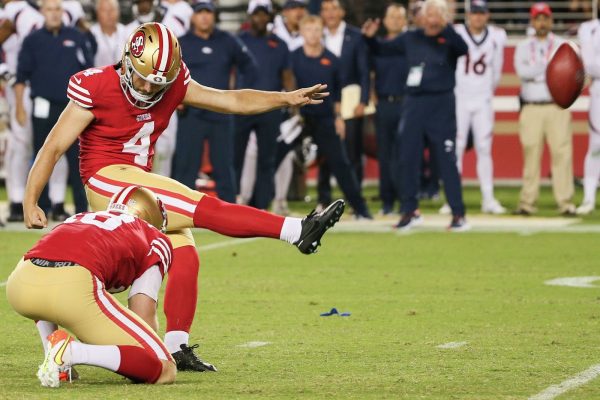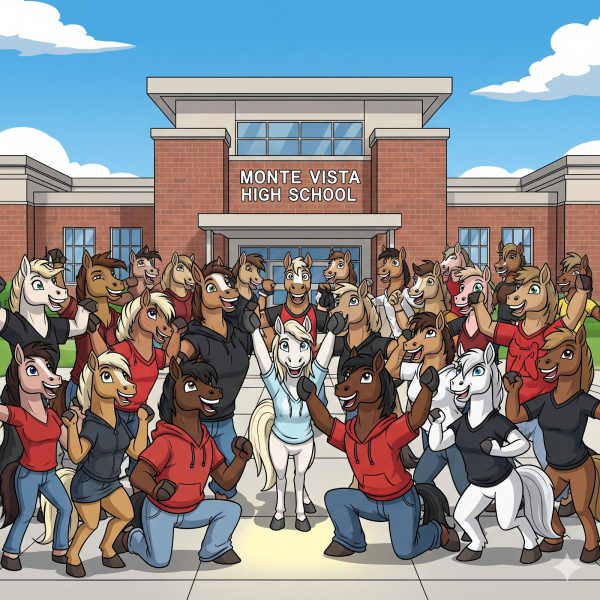“Can I Speak to the Manager?”
Amy Cooper, a woman in Central Park, NY who is one of the first people to be associated both with the term ‘Karen’ and racism.
The name ‘Karen,’ once a nice, classic American name, has become a nation-wide meme and more recently a symbol of entitlement and privilege.
‘Karen’ is mainly a term used to refer to middle-aged white women who are acting in a way seen as racist or entitled; however, it can also be used to describe these older white women acting disrespectfully in public or to customer service workers.
‘Karen’ is being used today similarly to how “OK Boomer” was frequently used online in 2019: as a negative term for the older generations when they are behaving in a way most younger generations find impolite, such as being impatient at a restaurant and being rude to waitstaff. The term ‘Karen’ is used especially today when older white women are protesting the COVID-19 mask requirements during the pandemic.
Typical actions of a ‘Karen’ are asking to speak to a manager anytime something doesn’t go their way, being inherently difficult to employees and workers, refusing to wear a mask in public, and harassing people of color who aren’t doing anything remotely troublesome and are often simply going about their lives.
“Every video I see of a Karen, they seem very closed-minded, and unwilling to be educated, because they think that they can’t be wrong,” junior Madison Reaich said.
For many years, several standard white names were used in similar manners to describe disrespectful older white women, such as Becky and Brenda. However, Karen became the most often used in reference to a middle-aged woman complaining about customer service, which began the term’s association with entitlement. In early 2020, a video of a woman named Amy Cooper went viral. In the video, her biased perception against a black man in Central Park led to her calling the police and wrongfully accused him of committing a crime. Alongside the video, the term ‘Karen’ followed, giving the name its current association with white privilege and racism.
The question often brought up is whether or not the term ‘Karen’ is a slur. Because ‘Karen’ is often used in a derogatory manner, the term does meet the literal definition.
However, the key difference between a slur such as the n-word and other slurs is the factor of discrimination. ‘Karens’ are typically not a disadvantaged or challenged group of people, as the entire definition of the term revolves around the privilege accompanied with it.
Therefore, unlike the n-word, which has a long history of racism, violence, and hatred surrounding it, the term ‘Karen’ is not nearly as derogatory because ‘Karens’ often aren’t discriminated against; in fact, they are usually the people discriminating against others. ‘Karens’ claim the term is a slur because in doing so it allows them to claim victimhood, but the reality is that the term isn’t as offensive as they want to believe it is.
A common argument against the term ‘Karen’ is the inherent sexism of the term because of how it only applies to women. Women often are labeled with negative terms such as ‘bossy’ while men would be called ‘assertive, leader material.’ The difference between these is that this term started targeting the female stereotype of angry suburban housewives, and later developed its connotations of racism and bigotry. While it is inherently unfair towards the female gender, it still does not even come close to the levels of hatred and violence that accompany terms such as the n-word. The term is based on discrimination and rudeness, and the main use is not in sexist circumstances.
“Karens are stubborn, entitled women who believe the world revolves around them and they could never be wrong,” said Tamar Franbuch, Monte Vista junior.
When you add together the elements of privilege, entitlement, stubbornness, your outcome is a ‘Karen.’

Elisabeth Delpouys is a junior at Monte Vista high school, as in her second year of Journalism. Elisabeth...






